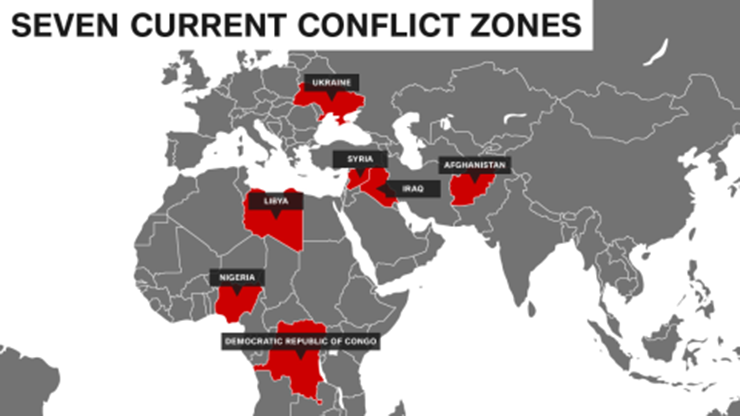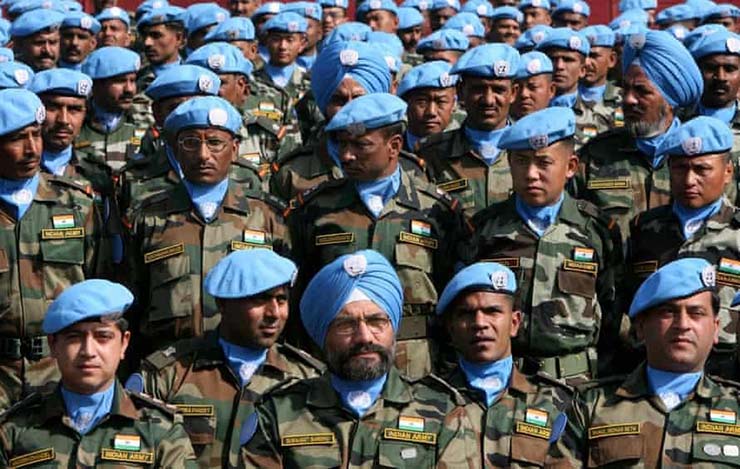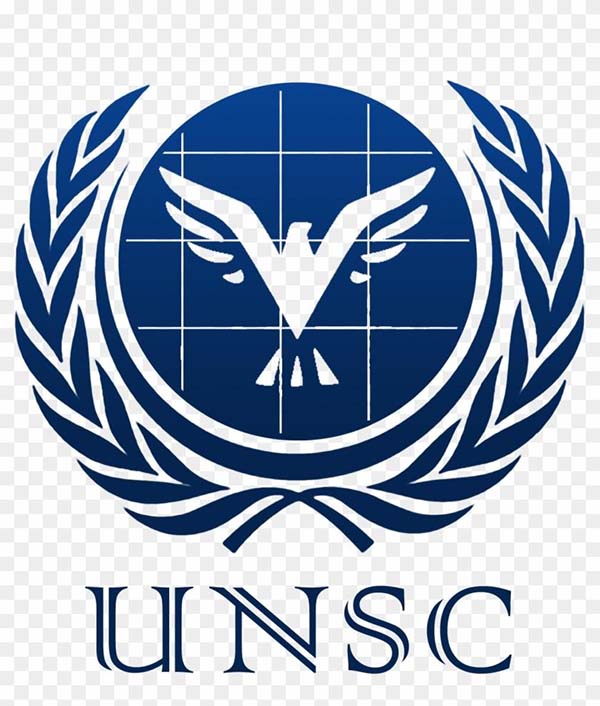
In the backdrop of the present conflict between Russia and Ukraine, there has been a debate on the relevance of the United Nations and its role in addressing the conflicts worldwide. A review is being sought on the charter of the United Nations to enable it to be able to enforce a much greater impetus to bring about peace among nations. A number of questions need to be asked. Especially, has the United Nations outstretched its charter after the end of the Cold War and divested focus from more pressing issues? And, are we seeing an era of Cold War 2.0, wherein the United Nations would need to focus on restructuring itself to be more responsive towards conflict management. A much-needed debate is warranted.
Historical Background
The United Nations came into being in 1945 after the dissolution of the erstwhile League of Nations. Since then the United Nations has been actively involved in peace-keeping, arms watching, social and humanitarian rights, climate change and other relevant issues. The organisation has grown exponentially from 51 nations and has today 193 countries as its members. Whatever may have been said about its efficacy and shortcomings, the UN remains the only organisation with such a wide universal membership. It has successfully intervened in many disputes and settlements. It has promoted and conducted free, fair and transparent elections and has been instrumental in rebuilding nations after devastation and conflicts.
Today, more than 80 per cent of the work being done by the United Nations relates to humanitarian causes. For instance, the World Food Program, the largest food imitative, brings food in emergencies, providing aid and protection to thousands of migrant refugees and displaced civilians worldwide, tracking the onset and spread of diseases and plagues, saving the lives of millions of children through vaccination and immunisation campaigns and providing aid to women and children in the war zones.

UN Peace Keeping Role
Another important area, which the United Nations has addressed successfully, is its role in sending UN peacekeepers to areas that are undergoing strife. It is important to highlight India’s role in UN peacekeeping operations. India is one of the founding members of the UN, participating in 51 out of 71 peacekeeping missions and it has contributed over 2,58,000 personnel, being the largest contributor of peacekeepers in the world. India’s commitment is unparalleled having faced 159 casualties to its men in the supreme sacrifice of the defence mandate of the UN. Our peacekeepers have operated in hostile terrain in countries such as Lebanon, Rwanda, Congo, Yemen, Angola, and Sierra Leone to name a few.
Concept of Peacekeeping
It would be very important to differentiate between the concept of collective security and peacekeeping in an international environment. While collective security is a punitive process designed to be carried out with some degree of discrimination but not necessarily, impartially, ‘peacekeeping’ is intended to be politically impartial and essentially non-coercive. Hence peacekeeping was, and has always been, based on a triad of principles that give it legitimacy, as well as credibility; namely, consent of the parties to the conflict, the impartiality of the peacekeepers, and the use of force by lightly armed peacekeepers only in self-defence.
These three principles have been under severe strain in the last three decades. The premise on which UN peacekeeping was based is that violence in inter-state and intra-state conflicts can be controlled without resorting to the use of force or enforcement measures. No doubt, some theorists are of the view that force needs to be met with force. An objective analysis of the history of conflicts probably reveals that the use of force and enforcement measures, particularly in internal conflicts, tend to prolong the conflict rather than resolve it speedily. This is not, however, to suggest that the use of force be discounted altogether. In certain circumstances, the use of force may well be called for as a catalyst for a peaceful resolution. A quote attributed to Al Capone, a notorious Chicago gangster of the early 20th century, is probably appropriate in this context, “You can get a lot more done with a kind word when you have a gun in your hand than with a kind word alone.”
Security Council: Need for Review
The UN Security Council is the organ with the primary responsibility for maintaining international peace and security. It is for the Security Council to determine when and where a UN peace operation should be deployed. Apart from this, it also includes, calling on Members to apply economic sanctions and other measures not involving the use of force to prevent or stop aggression; or to take military action against an aggressor.

Outlining its structure and functions is an essential first step in determining its success. It consists of 15 members, five of which are permanent and have veto power (the P5), namely the United States, the United Kingdom, Russia, China and France. These were considered the main military powers when the UN was established and their veto right would prevent them from going to war against each other while creating a necessary balance when taking decisions on security issues that would be collectively enforced.
One important factor that is a cause of concern is that the Security Council, which is the only organ with binding powers, is emerging as a forum that gives some states a status more equal than the others. The UN is not an autonomous agent making decisions separate from the power politics of the world. The Permanent Five, the victorious powers and allies of World War II, have veto power and therefore their interests are supreme when decisions are made on what actions the UN will take and how well resourced such action will be. From 1945 to 1990, the Cold War ensured that all conflicts around the world were translated into tests of one or other of the superpowers and this precluded action in all but exceptional cases, such as Korea.
As a result of the power of the Permanent Five in the Security Council, the UN has been prevented from acting on any matters that affect them or their interests – for example in Tibet, Chechnya or Central America and now in Ukraine. Moreover, the organisation, on the decision of the members, particularly the most powerful member – the United States, has been deprived of funds, for both peacekeepings and for its humanitarian functions.
This shows that the individual interests of some states make them deviate from institutional constraints, pointing to flaws in the theory of liberal institutionalism that laid the basis for the UN. Such examples spark doubt about the credibility of the UN and UNSC and disrupt the balance that the composition of the UNSC is to uphold, which is one important obstacle to its success in maintaining peace and security. Therefore, a review of the structure of the Security Council is warranted.
Emerging Global Conflicts
The global conflicts and emerging security environment are radically different from what they were a decade ago. Inter and intra-state conflicts have crossed borders and have expanded their influence to include terrorism, insurgencies, religious fanaticism and ethnic interests. While there has been a steady and sustained decline in inter-state conflicts, the incidents of intra-state conflicts are on the rise, which is characterised by a fragile government, armed groups, economic collapse and a large displaced population.
Today’s most dangerous flashpoints—whether Ukraine, Taiwan, or confrontations with Iran—relate in some way to the world struggling for a new equilibrium. As for COVID-19, the pandemic has exacerbated the world’s worst humanitarian disasters and propelled impoverishment, rising living costs, inequality, and joblessness that fuel popular anger. It had a hand this past year in a power grab in Tunisia, a coup in Sudan, and protests in Colombia. The economic hurt due to COVID-19 could strain some countries to a breaking point. Although it is a leap from discontent to protest, from protest to crisis and from crisis to conflict, the pandemic’s worst symptoms may yet lie ahead.

Involvement of Non-State Actors
Armed groups have been building shadow economies through global networks thus altering the politics/economy of the country, which has a detrimental effect on governance, undermining state authority and weakening its capacity. Similarly, the involvement of Non-State Actors like Hezbollah in Lebanon has changed the dynamics of Peace Keeping Operations. In 1919, fewer than 5 per cent of civil wars involved military involvement by external actors; by 2021, that number had grown to 50 per cent. The involvement of Russia, the US and Iran in Syria, Uganda, Rwanda and the Democratic Republic of Congo (DRC) highlights the level of external involvement in internal conflicts.
The Changing World Order
The emergence of regional power centres has created the illusion of multi-polarity, even as the systemic bipolarity between the US and China encompasses all relevant networks. An important structural layer of the global system consists of middle-sized powers oscillating between Washington and Beijing to maximise their own gains while avoiding picking any side for as long as possible — there are neither eternal allies nor perpetual enemies, only eternal and perpetual interests. This seems to be the leading geopolitical maxim of the upcoming Indo-Pacific decade.
The emerging trends in technology, climate and demography have a profound impact on the conflict landscape. Technology has enabled a various range of actors to influence conflict in a country through social media, the dark web and weaponisation of technologies along with the superimposition of AI and other disruptive technologies. Climate changes, including changing rainfall patterns and extreme weather, are driving the population towards poverty, illegal activities, armed groups and large-scale displacement. Also in such nations, demographic growth is much higher than the global average thus putting pressure on national resources thereby increasing the conflict risks.
Conclusion
The work of the United Nations impacts people around the world on issues related to peace and security, development and human rights; from disarmament to efforts to combat terrorism and extremism; from conflict prevention to peacekeeping and peacebuilding; from disease prevention to the promotion of gender equality. The UN also has considerable scope for long-term thinking on the future of conflicts. Salient issues include countering disinformation and misinformation that can exacerbate conflicts, addressing links between climate change and political violence, and helping blunt the impact of COVID-19 in volatile areas.
Oft-cited points of criticism include – a perceived lack of the body’s efficacy (including a total lack of efficacy in both pre-emptive measures and de-escalation of existing conflicts that have ranged from social disputes to all-out wars), rampant appeasement, collusion, promotion of globalism and so on. The UN’s failure has been multifaceted and cannot be ascribed to one single cause. The UN must address these concerns if it wants to stay relevant in the present times.
-The writer is a former MGAOC Central Command. He has served in various important assignments in the Indian Army in Jammu and Kashmir and the North-East. He covers defence issues on various national TV channels. His recent book, “Breaking the Chinese Myth”, has been a best-seller on Amazon. Views expressed are personal and do not necessarily reflect the views of Raksha Anirveda








